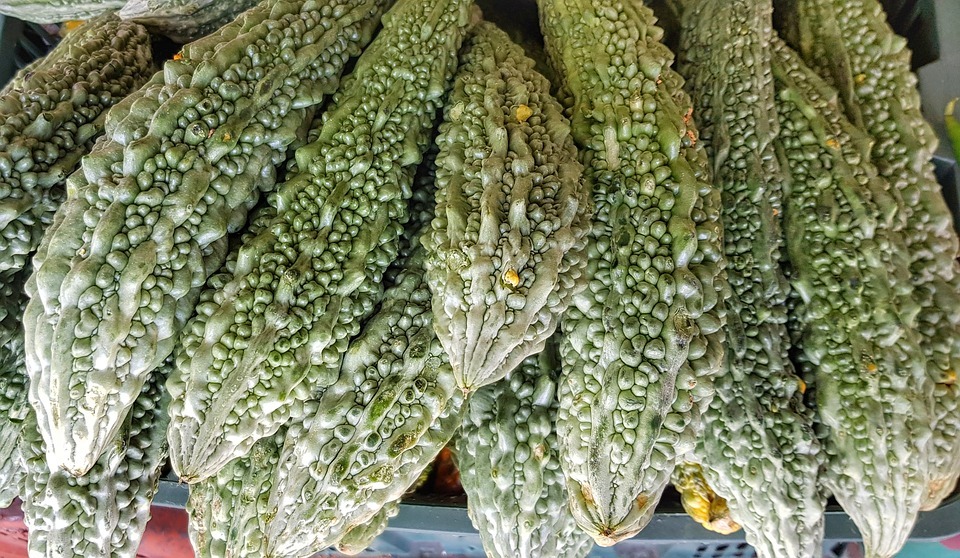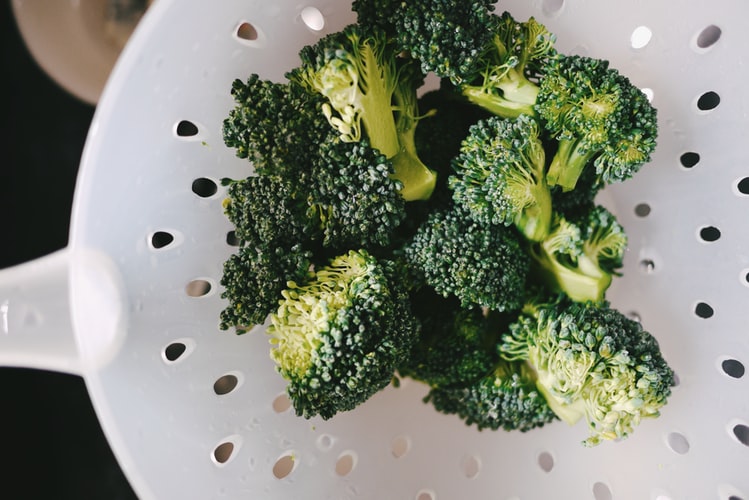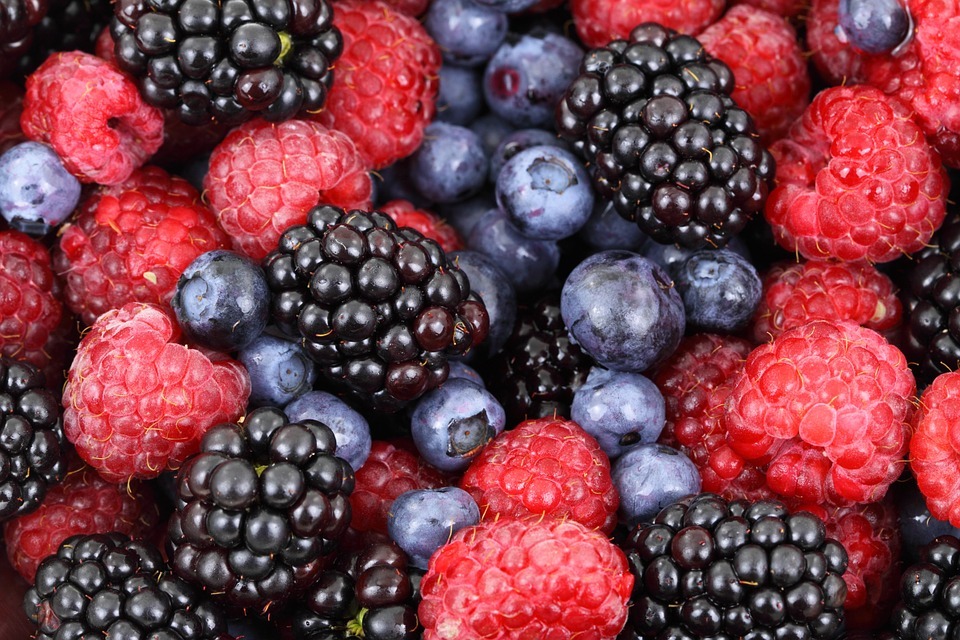Nutritional Value of Fruit Juice: Benefits and Facts - What You Need to Know
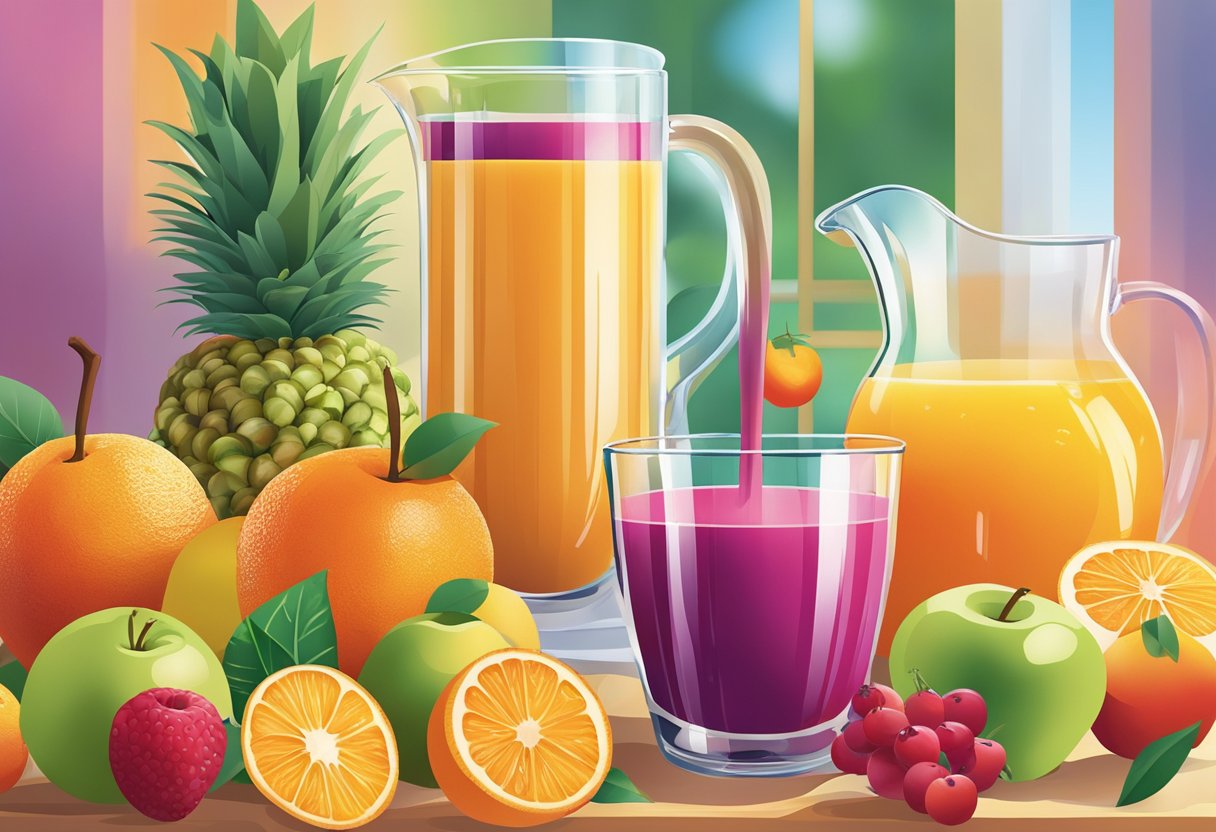
Fruit juice is a popular beverage enjoyed by many for its sweet taste and refreshing quality. It comes in many varieties, from orange and apple to more exotic blends like pomegranate and acai. While fruit juice can provide some nutritional benefits, it's important to understand its content and effects on health.
A typical 8-ounce serving of fruit juice contains about 100 calories and 25 grams of carbohydrates, mostly from natural sugars. It also provides small amounts of vitamins and minerals, varying based on the type of fruit used. For example, orange juice is high in vitamin C, while grape juice contains more antioxidants.
Some people drink fruit juice as part of a healthy diet, believing it offers the same benefits as whole fruit. But juice lacks the fiber found in whole fruits and can be high in sugar. This means it may not be as filling or nutritionally complete as eating the fruit itself. It's best to enjoy fruit juice in moderation as part of a balanced diet.
Understanding Fruit Juice
Fruit juice comes in many varieties and offers different nutritional benefits compared to whole fruits. Some juices pack more nutrients than others, while the juicing process itself impacts the final product.
Types of Fruit Juice
100% fruit juice contains only the liquid extracted from fruits with no added sugars or preservatives. Popular options include orange, apple, and cranberry juice. Some juices are made from concentrate, where water is added back to a reduced fruit extract.
Natural juices may include pulp, which adds fiber. Pomegranate and grapefruit juices are known for their tart flavors and high antioxidant content. Prune juice is often used for digestive health, while lemon juice adds zest to drinks and recipes.
Tomato juice, though technically a vegetable juice, is often grouped with fruit juices. It's low in sugar and high in vitamins.
Juicing vs. Whole Fruits
Juicing removes most of the fiber found in whole fruits. This loss of fiber means the body absorbs the sugars in juice more quickly than when eating whole fruit.
Juice can provide a concentrated source of vitamins and minerals. For example, orange juice delivers a big dose of vitamin C. But it lacks the fiber of whole oranges.
The sugar content in fruit juice is often higher than in whole fruits. This is because it takes several pieces of fruit to make one glass of juice. Eating whole fruit can be more filling due to its fiber content.
Nutritional Components of Fruit Juice
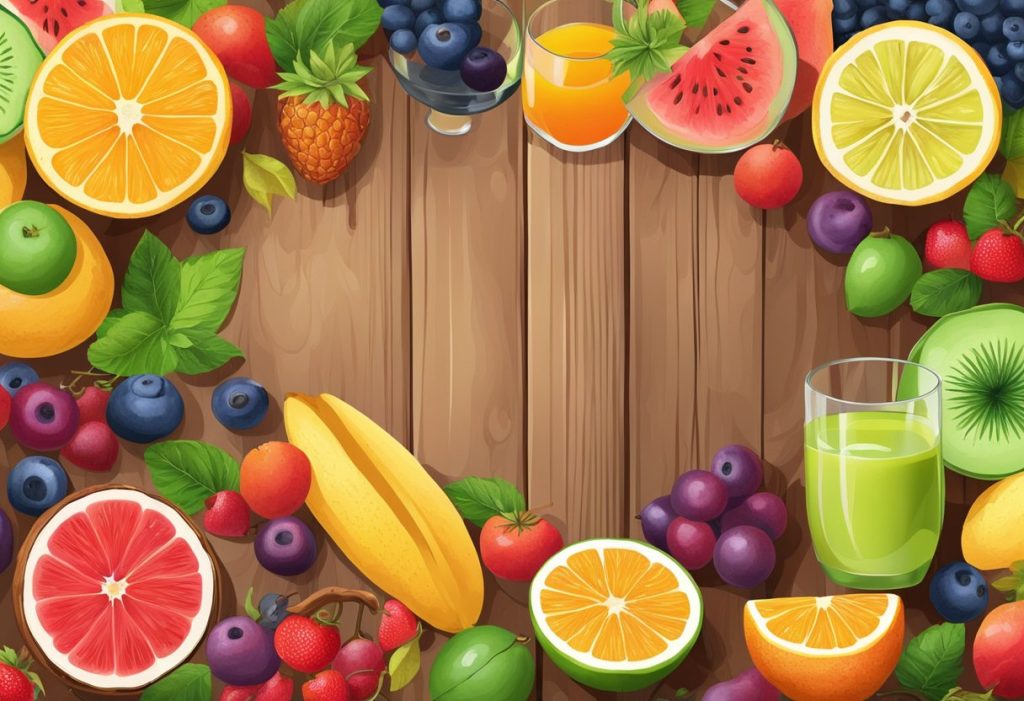
Fruit juice contains many nutrients found in whole fruits, but in different amounts. The main components are vitamins, minerals, sugars, and small amounts of protein and fat.
Vitamins and Minerals Overview
Fruit juices are rich in vitamins and minerals. Vitamin C is very high in citrus juices like orange and grapefruit. A cup of orange juice has about 93 mg of vitamin C. This is more than the daily need for most adults.
Many fruit juices also have:
- Vitamin A
- Potassium
- Folate
- Calcium
The exact amounts vary by fruit type. For example, grape juice has more iron than apple juice. Prune juice is high in vitamin K. Most juices lack vitamin D, so some brands add it.
Sugar and Carbs in Fruit Juice
Fruit juices are high in natural sugars and carbs. A cup of apple juice has about 24 grams of sugar. Orange juice has around 21 grams per cup. These sugars come from the fruit itself.
Some key points about sugar in juice:
- It's mostly fructose and glucose
- It can raise blood sugar quickly
- It lacks the fiber of whole fruit
The carb content in a cup of juice ranges from 15-30 grams. This is mostly from the sugars. Juice has very little fiber, unlike whole fruits.
Protein and Fat Content
Fruit juices have very little protein or fat. A cup of orange juice has less than 2 grams of protein. Apple juice has even less.
The fat content is almost zero in most fruit juices. Some exceptions are:
- Coconut water (has small amounts of fat)
- Avocado-based juices
Juice is not a good source of protein or healthy fats. It's mainly water, sugar, vitamins, and minerals.
Health Benefits of Fruit Juice
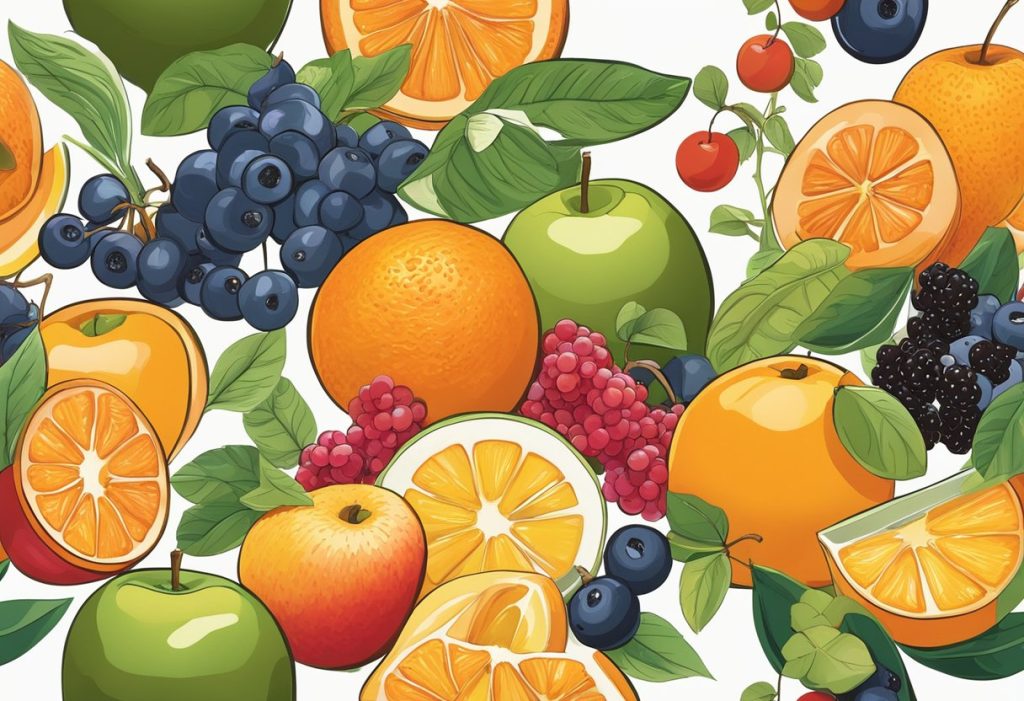
Fruit juice offers many health perks. It can help your heart, boost your immune system, and aid digestion. Many juices also support healthy skin.
Fruit Juice for Heart and Blood Health
Fruit juice can be good for your heart and blood vessels. Many juices have stuff that fights inflammation. This may lower your risk of heart disease.
Some juices can help control blood pressure. For example, pomegranate juice might make your blood pressure go down a bit.
Certain juices may also affect cholesterol. Orange juice has plant compounds that could lower bad cholesterol. But more research is needed to be sure.
Juices with lots of antioxidants, like grape juice, can help protect your blood vessels. This might make them work better.
Immune Health and Nutrition
Fruit juice can give your immune system a boost. Many juices have vitamin C. This vitamin helps your body fight off germs.
Orange juice is packed with vitamin C. One cup gives you more than your daily need. Other juices high in vitamin C include grapefruit and lemon juice.
Some juices have other nutrients that support immune health. These include vitamin A and zinc.
Fruit juice also provides fluids and electrolytes. This can help you stay hydrated, which is key for a healthy immune system.
Digestive and Skin Benefits
Some fruit juices can aid digestion. Prune juice is known to help with constipation. It has fiber and other compounds that get things moving.
Apple juice might help some people with digestion too. It has pectin, a type of fiber that can be good for gut health.
Fruit juice may also benefit your skin. Many juices have vitamins and antioxidants that support skin health. For instance, vitamin C helps make collagen, which keeps skin firm.
Some juices, like carrot juice, have vitamin A. This nutrient is important for healthy skin cell growth.
Potential Risks and Considerations
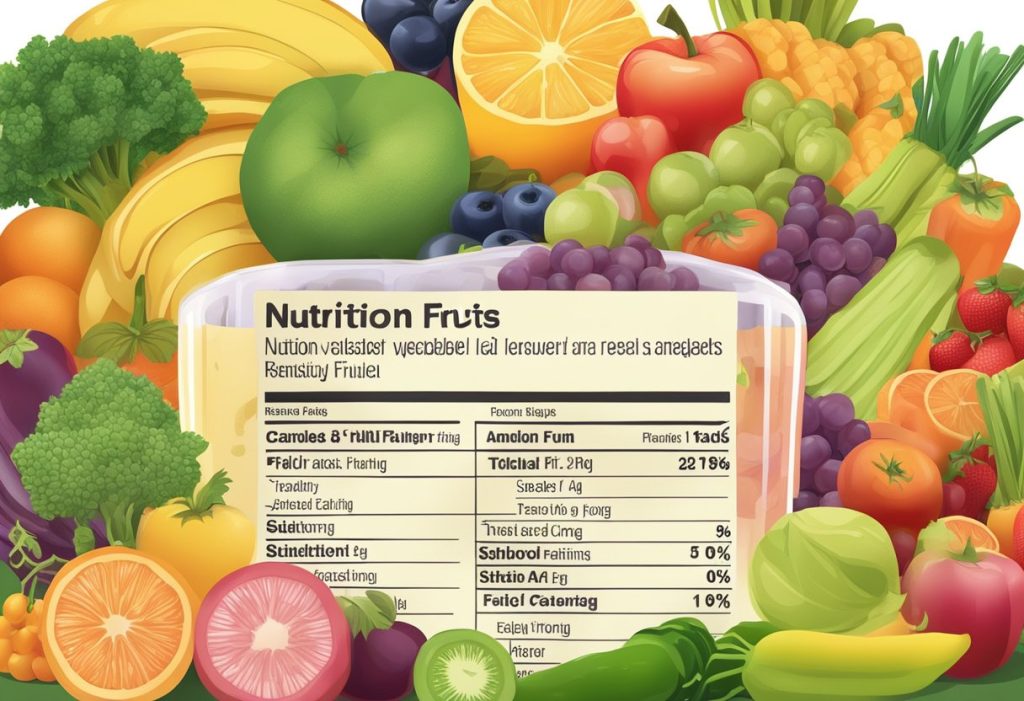
Fruit juice can have some drawbacks despite its nutritional benefits. It's important to be aware of how juice intake may affect weight, blood sugar, and children's health.
Weight Management and Sugar Intake
Fruit juices are high in calories and sugar. A cup of orange juice has about 110 calories, which is more than twice the calories in a whole orange. The sugar in juice is absorbed quickly by the body. This can lead to blood sugar spikes.
Too much juice may contribute to weight gain. The liquid calories don't make you feel as full as whole fruit. This can cause overeating. Added sugars in some juices also boost calorie content.
To avoid weight gain, limit juice intake. Choose whole fruits more often. They have fiber that helps you feel full.
Blood Sugar and Diabetes Risks
Juice can raise blood sugar levels fast. This is a concern for people with diabetes. The natural sugars in juice enter the bloodstream quickly. This causes a rapid rise in blood glucose.
Over time, frequent blood sugar spikes may increase diabetes risk. People with diabetes should be careful with juice intake. They may need to count the carbs in juice as part of their meal plan.
Whole fruits are a better choice. Their fiber slows sugar absorption. This helps keep blood sugar more stable.
Juice Intake for Children
Kids often drink too much juice. This can lead to health issues. Excess juice may cause tooth decay, diarrhea, and poor nutrition.
The American Academy of Pediatrics gives these juice limits for children:
- Under 1 year: No juice
- 1-3 years: Max 4 oz per day
- 4-6 years: Max 4-6 oz per day
- 7-18 years: Max 8 oz per day
Water and milk are better drink choices for kids. Whole fruits provide more nutrients and fiber than juice.
Parents should check juice labels. Look for 100% fruit juice with no added sugars.
Comparing Varieties and Choosing Wisely
Fruit juices come in many types. Some are clear, while others are cloudy. Labels can be tricky to read. Knowing what to look for helps pick the best juice.
Clear vs. Cloudy Juice
Clear juices go through more processing. This removes some nutrients. Cloudy juices keep more of the fruit's good stuff. Apple juice is a good example. Cloudy apple juice has more antioxidants than clear juice. It also has more fiber.
Pulp in juice adds nutrients. Orange juice with pulp has more fiber than strained juice. It also has more flavonoids. These are good for health.
Fresh-squeezed juice is very nutritious. But it spoils fast. Store-bought juices last longer. They are often pasteurized to kill germs.
Understanding Labels and Marketing
Juice labels can be confusing. The USDA has rules about what they can say. "100% juice" means no added sugar. "Juice drink" or "cocktail" often has added sugar.
Look at the ingredients list. The first item is the main ingredient. Check for added sugars. They go by many names like corn syrup or fruit juice concentrate.
The Nutrition Facts panel shows calories and sugar content. Compare different brands. Some have more sugar than others. "No sugar added" doesn't always mean low sugar. Fruit has natural sugars.
Optimal Consumption and Daily Intake
Fruit juice can be part of a healthy diet when consumed in moderation. The key is finding the right balance and amount.
Incorporating Juice into a Balanced Diet
Fruit juice works well as a breakfast staple. It pairs nicely with whole grain toast and eggs for a complete meal.
For a midday snack, mix juice with sparkling water for a refreshing drink. This cuts calories while still providing flavor.
At dinner, have a small glass of 100% juice instead of sugary soda. Choose juices without added sugar for the most health benefits.
Portion control is important. Stick to 4-8 ounce servings to avoid excess calories and sugar.
Recommendations for Daily Fruit Juice Intake
The USDA suggests limiting juice to 4-6 ounces per day for young children. Adults can have up to 8 ounces daily as part of a balanced diet.
Whole fruits are better than juice. They have more fiber and fewer calories. Try to eat whole fruit more often than drinking juice.
100% fruit juice counts as a serving of fruit. But it shouldn't make up more than half of daily fruit intake.
People with diabetes or weight concerns may need to limit juice further. Talk to a doctor about the right amount for your needs.
Topics in Scientific Research
Scientists have studied fruit juice to learn about its effects on health. Their work looks at the helpful parts of juice and how it might impact different conditions.
Antioxidants and Phytochemicals in Juice
Fruit juices contain many helpful compounds. These include antioxidants, which fight harmful free radicals in the body. Polyphenols, anthocyanins, lycopene, and flavonoids are types of antioxidants found in various juices.
Orange juice has vitamin C, while grape juice is rich in resveratrol. Pomegranate juice contains punicalagins, which are strong antioxidants. These compounds may help protect cells from damage.
Studies show that drinking juice can raise antioxidant levels in the blood. This might lower the risk of some diseases. But more research is needed to fully understand these effects.
Clinical Studies on Health Outcomes
Researchers have done trials to see how juice affects health. Some studies looked at heart disease risk. Others focused on brain function or cancer prevention.
One study found that drinking cranberry juice might help prevent urinary tract infections (UTIs) in some people. Another showed that orange juice could improve blood vessel function.
Grape juice has been linked to better memory in older adults. Pomegranate juice might slow prostate cancer growth, but more studies are needed.
While these results are promising, scientists say more research is required. Large, long-term studies will help confirm the health benefits of fruit juices.
Special Topics
Fruit juice can play a unique role during pregnancy and provides key micronutrients that support health. Let's look at some important considerations for these special topics.
Fruit Juice During Pregnancy
Pregnant women may benefit from drinking certain fruit juices in moderation. Orange juice is a good source of folate, which helps prevent birth defects. It also provides vitamin C to boost iron absorption from other foods. Prune juice can help relieve constipation, a common issue during pregnancy.
But pregnant women should be careful not to drink too much fruit juice. The high sugar content may lead to excess weight gain. Some juices like unpasteurized apple cider can carry harmful bacteria. It's best to stick to 100% pasteurized juices without added sugars.
Doctors often suggest limiting juice to 1 cup per day during pregnancy. Water, milk, and whole fruits are usually better choices for staying hydrated and getting nutrients.
The Role of Key Micronutrients
Fruit juices contain many important micronutrients that support health:
- Vitamin C: Boosts immune function and helps absorb iron
- Potassium: Aids heart and muscle function
- Folate: Crucial for fetal development
- Calcium: Builds strong bones and teeth
Orange juice is high in vitamin C and folate. Prune juice provides potassium and magnesium. Fortified juices may contain added vitamin D and calcium.
But juice lacks the fiber of whole fruit. It's also high in natural sugars. For the most nutritional value, it's best to enjoy a variety of whole fruits and veggies along with small amounts of 100% fruit juice as part of a balanced diet.
Conclusion
Fruit juice can be part of a healthy diet when consumed in moderation. It provides vitamins, minerals, and antioxidants that support overall health. Many juices offer similar nutrients to whole fruits.
But fruit juice also contains natural sugars and calories. Drinking too much may lead to weight gain or blood sugar issues. It's best to limit intake to small servings.
Choosing 100% fruit juices without added sugar is ideal. Reading nutrition labels helps make informed choices. Comparing different types of juices can reveal which have the most nutrients.
For most people, whole fruits are still the better option. They provide fiber and help with feeling full. Juices lack fiber and don't have the same filling effect.
Balancing juice intake with other healthy foods is key. A varied diet with fruits, vegetables, and other nutritious items supports wellbeing. Fruit juice can be one tasty part of that mix.

